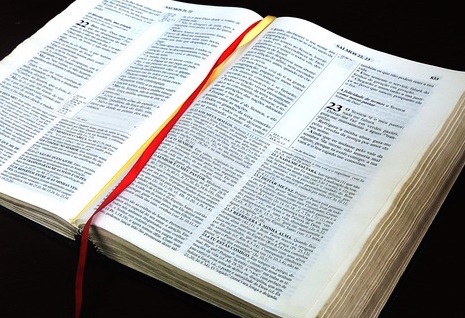The Lamentations of Jeremiah Chapter 3 Lessons from the textGod Exalted; Sin Rebuked Jeremiah does a beautiful job of exalting God while weeping over the sins of the people. He is greatly grieved that Jerusalem which was once so full of the glory of God has fallen into terrible sin. He recognizes the tragedy in something that had such wonderful potential turning out so horribly. The analogy today might be a teenager who just graduated high school with a full ride to Harvard and has a bright future because of his amazing intellect only to die from binge drinking at his graduation party. What a waste! What a terrible end! These are emotions we see reflected as Jeremiah cries out over the destruction of his nation. Yet all the while, Jeremiah glorifies God. Despite his sorrow, he takes the time to draw magnificent images of God. God is depicted as a valiant warrior who draws back His bow against His enemies. He sits upon a mighty throne and has nations as His footstool. He has broken down strong holds. He unleashes His wrath on a sinful nation. In His judgment against sin, He is glorified. Jeremiah recognizes that God is worthy of praise regardless of whether or not the people enjoy the consequences of His judgments. He knows that God is righteousness. He also knows that God takes no pleasure in what He is doing, yet at the same time God sends judgment magnificently. Put another way, even when God is pouring out His wrath, He still maintains all the glory and splendor of His divine personage. God is glorious no matter what He is doing because whatever He does, He does well. Verse by Verse Commentary 1 God has covered Jerusalem with a cloud, which in this case symbolizes darkness covering the land. This is opposed to the cloud of glory that should have been present in Jerusalem (II Chro. 5:14). It is this same cloud that signified God’s divine presence that made Jerusalem beautiful; that is, God is what makes the city beautiful. Therefore, God not remembering His footstool, casting down the beauty of Jerusalem, and the darkening of the city all refer to the darkness and lack of beauty that arises in the absence of God’s glorious presence. See also Lamentations 1:6. Noteworthy is that Jerusalem’s beauty had a place in heaven until its sin cause it to be caste out of heaven (compare with Rev. 12:7-9). 2 The strongholds of Judah has two meanings. First, the righteous strongholds of God are gone. These are the holy temple, the glorious presence (shekinah glory), and the word of God. They have been trampled underfoot by the Chaldeans. Second, all the idols and defenced cities have been destroyed. Without God’s power, strongholds, whether righteous or idolatrous, cannot stand. 3 The horn of Israel is its king. Instead of fighting for Israel, God has withdrawn His protective hand. The result is utter destruction. 4-5 Now, Jeremiah says that instead of merely withdrawing His right hand, God has turned it against Judah. This is in keeping with God’s warning of the consequences of sin (Jer. 18:11) and the statement that there is no peace for the wicked (Isa. 57:21). Noteworthy is that while sin is being punished, God is being magnified and praised as mighty warrior. 6-7 God has plucked up the temple, ordinances, and priests as if they were a weed in a garden. He has warned of His disdain for defiled offerings and corrupt priests (Amos 5:21-23, Isa. 1:11-25). 8 The walls of Jerusalem mourned at the decree of God against Jerusalem. Compare with Luke 19:40. Since there were no humans to grieve over the coming destruction, the stones and land itself cried out. 9-10 Now that destruction has come, the wisest of the sit in sackcloth, a sign of great sorrow but not necessarily repentance. The virgins hang their heads because they know that they have been shamed by God. Noteworthy is that God no longer speaks through the prophets; He has abandoned the mainstream prophets because of their sin and is only speaking through a few, true prophets. 11-14 Jeremiah is terribly grieved at the state of his people. The children are suffering greatly. The people are at the tender place where they could be led back to God (because they recognize that they are under the judgment of God), but instead of teaching repentance the prophets are sharing vain and foolish messages. Instead of discovering sin, they are ignoring it. The implication is that the people will still be lost in their sin because no one is telling them of their sin and therefore the people are unable to repent. Of course, Jeremiah and the other true prophets of God have been exposing the people’s sins. Nonetheless, the culture teaches vain and foolish things, drawing the people away to join the majority in willing ignorance of God. The false prophets are leading the people away from the one thing that can heal them. 15-17 Jeremiah now gives the Gentile perspective. Jerusalem is supposed to be the beauty of the earth, the place where God communes with all of mankind but has instead been devoured by its enemies. The Gentile recognize that this destruction is the result of divine judgment. 18-22 Interestingly, the “their” here refers to the Gentiles. Since the Jews have failed to demonstrate repentance, the Gentiles cry over the shame of God’s beautiful city (the apple of His eye) being destroyed. They call for the walls of Jerusalem to mourn this tragedy. Noteworthy is that sinners are called to repentance not only by God but also by those around them. God passes judgment only because people refuse to repent after hearing how to repent and from what to repent. Jeremiah is saying these words to remind the people of how to cry out to God. On the women eating their fruit (their children), see Lamentations 4:10. ___________________ Thank you for your faithfulness in studying God’s word. Please comment below to share what you learned from today's lesson.
0 Comments
Leave a Reply. |
Devotional Categories
All
Archives
September 2023
|
|
Join my mailing list!
|
Thank you!You have successfully joined our subscriber list. |
|
© 2024 Melissa Beaty
|
